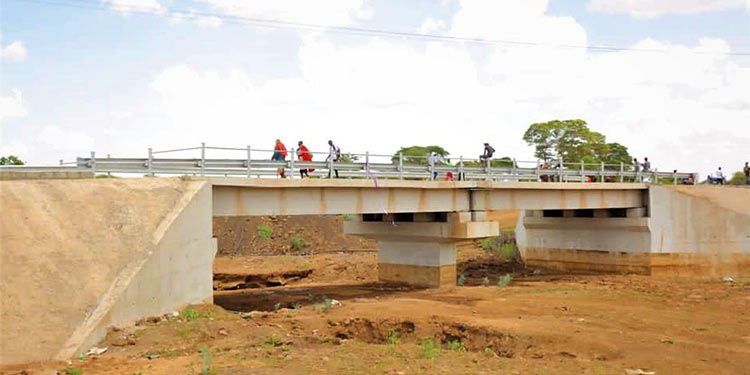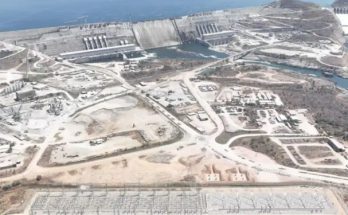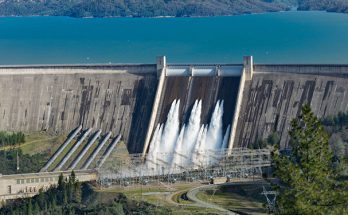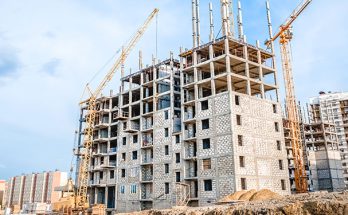
A multi-million dollar bridge connecting three sub-counties in Kajiado County has been dedicated.
The Paai Bridge connects three wards: Matapato North (Kajiado Central), Mbirikani/Eselenkei (Kajiado South), and Kenyawa Poka Ward in Kajiado East Sub-county.
The three Wards share a marram road that crosses the river. The Orkeriai River, the area’s greatest seasonal river, usually breaches its banks during the rainy season, endangering anyone who dares to cross it.
The Bridge was constructed by the County Government at a cost of Sh. 100 million, is intended to improve the mobility of people and commodities within the three wards.
Kajiado Governor Joseph Lenku stated that the Bridge will improve economic and social contacts among locals who were formerly cut off totally when the River Orkeriai broke its banks.
During the Bridge’s opening, Lenku stated that it will open up the area and thereby transform the locals’ economic life.
He highlighted that prior to the Bridge’s construction, farmers were cut off from markets during the rainy season, causing them to lose money as their products rotted on the farms.
‘This Bridge will economically alter this neighbourhood.’ Just a year ago, when it rained, trucks carrying horticultural goods may become trapped at the river for days, unable to pass, resulting in massive losses for farmers and dealers,’ said Lenku.
The Governor disclosed that the Paai Bridge crosses regional boundaries to alter inhabitants’ lives by opening up the horticultural belts of Kajiado South, Central, and East Sub-counties.
Local locals applauded the bridge’s opening, noting that it formerly took days to cross the bridge during the wet season.
They said that they were unable to reach hospitals, cattle markets, and national and county government offices in Mashuuru, Loitokitok, and Kajiado town because they had been shut off totally.
Residents stated that throughout the years, many people, including schoolchildren, have died when their animals and automobiles were washed away while attempting to cross the swollen river.
Micah Narasha, a local, said the Bridge was long overdue because their routine day-to-day activities are disrupted when the seasonal river exceeds its banks.
During the rainy season, no one could enter or leave the settlements until the water level dropped to a level that they could wade across, according to Narasha.
‘Before the bridge was built, farmers couldn’t get to their farms, and inhabitants from the three wards couldn’t get to outside marketplaces for days until the water levels dropped,’ Narasha explained.




